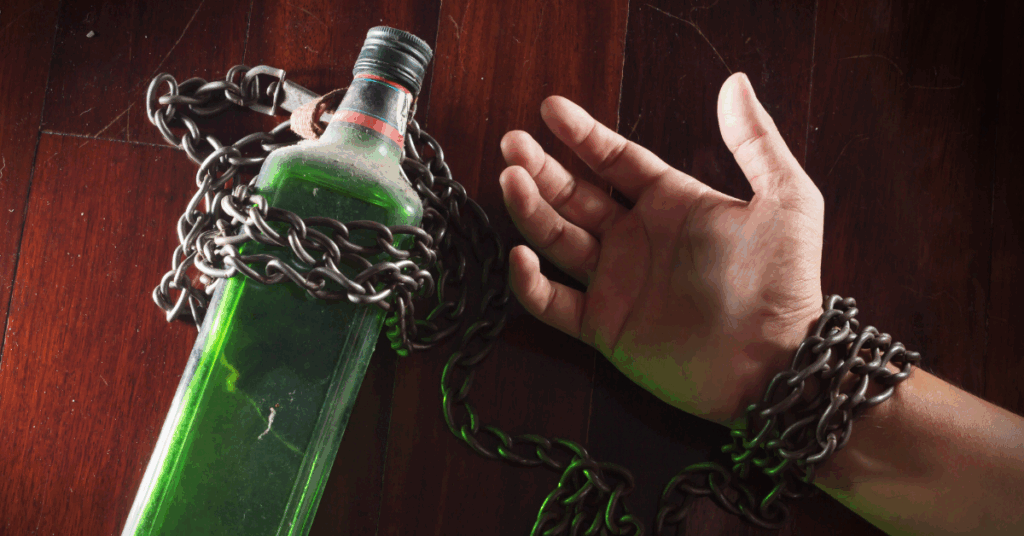Early experimentation and social drinking
The first phase starts off quite casually. Many people don’t realise it when the pattern begins. Social settings like braais, weddings, or casual after-work drinks set the scene. There’s no pressure. A glass or two, and that’s it. At this point, it feels harmless. The person is in control and can say no when they’ve had enough. But this is also when the brain starts to link alcohol with pleasure and social connection.

Over time, what was once occasional becomes a bit more regular. Someone might look forward to a drink after work or use it as a reward for getting through a rough day. This is where habits start to form. It’s not yet a problem, but the reliance begins to build, even if it’s only emotional at this stage.
Building tolerance and increased consumption
With more frequent drinking, the body starts to adjust. The same amount no longer gives the same feeling. This leads to higher intake. One drink turns into two, then maybe three. It creeps up slowly, and the person might not even notice how much they’ve increased. Tolerance is not just a physical shift. Mentally, the person starts to see alcohol as a normal part of their routine.
As this becomes a pattern, they may start drinking more often during the week. Not just weekends or social events. It starts to feel like a normal part of relaxing or coping. This is often when friends or family might notice a change. The person may become defensive when questioned, thinking they’re still in control.
Emotional dependence and regular use
By now, alcohol use isn’t just for enjoyment. It becomes a way to manage stress, anxiety, or even boredom. This emotional link is harder to break than physical cravings. When someone feels like they need a drink to wind down, to sleep, or to feel confident, that’s a warning sign.
The line between choice and dependence starts to blur. People in this stage might plan their days around when they can drink. They might cancel plans if drinking isn’t part of it. It becomes something they look forward to not for pleasure, but for relief. That’s when dependence begins to set in.
Risky behaviour and loss of control
This stage often involves poor judgement. The person might drink before driving, argue more with loved ones, or miss work due to hangovers. It’s not just about how much is being consumed. It’s about how it affects everyday life. The person might make promises to cut back but doesn’t follow through.
The need to drink outweighs the consequences. Even when things start to go wrong, they carry on. They might drink alone or hide how much they’re consuming. This secrecy is usually a sign they know something’s wrong, but they don’t feel able to stop. The control they once had is slipping away.
Physical dependence and withdrawal symptoms
When someone reaches this stage, their body reacts to not having alcohol. They might shake, sweat, or feel anxious when they haven’t had a drink. These are withdrawal symptoms. It’s no longer just about choice. The body needs alcohol to function.
Waking up and needing a drink to feel normal becomes part of the routine. This is dangerous. The risks of long-term health problems like liver damage, high blood pressure, and memory loss are high. But even with these risks, stopping feels impossible. That’s the nature of dependence. It rewires how the brain works.
Health issues and social consequences
As addiction deepens, the health effects start to show. There might be weight changes, chronic fatigue, or mood swings. Mentally, people can experience depression, anxiety, or paranoia. Relationships suffer too. Arguments become more common. Trust breaks down.
At this point, someone might face problems at work or even lose their job. Financial stress can follow. Isolation often becomes a theme. Friends and family start pulling away. The person might be aware of all these consequences but feel stuck. That feeling of being trapped adds to the stress, which leads to more drinking.
Failed attempts to stop or reduce
Many people in this phase try to stop on their own. They might succeed for a few days or weeks, but then go back. The pull of alcohol feels too strong. This cycle of stopping and relapsing is exhausting. It also lowers self-esteem, which makes it harder to try again.
Each failed attempt feels worse than the last. Shame builds. The person starts believing they’ll never stop. That mindset is dangerous. It keeps them stuck. They may even start avoiding people who support them, feeling like they’re a disappointment. This isolation adds to the problem.
Loss of interest in responsibilities and hobbies
Things that once mattered start to fall away when an alcohol addiction arises. Hobbies, sports, or time with family don’t seem as important anymore. Alcohol becomes the priority. Even basic responsibilities like paying bills or cleaning the house might be ignored. The person is focused on when they can drink again.
This isn’t laziness. It’s the grip of addiction. When the brain is focused on one thing, everything else fades into the background. This stage can lead to serious neglect. Children, pets, or work duties may be left unattended. That can create a ripple effect of problems.
Behavioural changes and isolation
At this point, personality changes are common. Someone who used to be social might become withdrawn. They might lash out or get irritated over small things. People often say the person “isn’t themselves anymore”. Alcohol affects the brain and behaviour, and those changes can last long after drinking stops.
Isolation grows deeper. Shame, embarrassment, and the fear of judgement keep people from reaching out. The longer someone stays in this stage, the harder it is to rebuild trust. But this doesn’t mean change isn’t possible. It just takes more effort, and most importantly, help from others.
Crisis point and seeking help
Eventually, something snaps. This could be a hospital visit, a run-in with the law, or a serious health scare. It’s often a major event that makes someone face what’s happening. But reaching this point doesn’t mean failure. It can be the moment things start to shift.
At this point, some people look for a proper rehabilitation programme. It’s a step they might have avoided before, but now see as necessary. Choosing to go to rehabilitation isn’t a sign of weakness. It shows the person is ready to take their life back. That willingness is often what separates those who recover from those who stay stuck.

